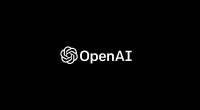Apple has taken its clash with India’s competition watchdog to court, escalating a regulatory fight that could reshape how the country punishes global tech giants. In a comprehensive 545-page petition filed with the Delhi High Court, the tech titan is pushing back against India’s new antitrust penalty rules, which allow fines to be calculated using a firm’s global turnover instead of only its India revenue, reports Reuters. For Apple, a company generating more than $380 billion in annual worldwide sales, this transforms a standard competition inquiry into a worst-case exposure of about $38 billion. The Delhi High Court will take up Apple’s petition on December 3.
The Tim Cook-led company argues that the new penalty rules violate constitutional principles, impose far harsher fines than necessary, and do not make economic sense- especially because the case is only about how the App Store operates in India, not about its business worldwide.
The legal fight traces back to 2022, when Match Group and several Indian startups accused Apple of abusing its dominance in the iOS ecosystem by forcing developers to use its in-app payment infrastructure and pay commissions that could reach 30%. The Competition Commission of India opened a formal investigation, and while no final order has been issued, the landscape shifted dramatically in 2024 when India rewrote its competition statute. And the new framework empowers regulators to impose penalties on the basis of a company’s total global turnover.
In its filing, Apple insists that the penalty model breaks from established principles of proportionality. The tech giant warns that this jurisdictional overreach could allow Indian regulators to punish business lines entirely unrelated to the conduct in question. Another major point of contention is the possibility of retrospective application. Apple points to a recent case, unrelated to its own, in which the CCI used the 2024 amendments to evaluate conduct that occurred well before the law changed. The company argues that applying tougher penalty provisions retroactively violates due-process norms and could expose firms to crushing liabilities for business models that were lawful at the time.
The timing is especially sensitive for Apple. India – now the company’s fourth-largest market worldwide – delivered its highest-ever quarterly revenue for Apple in Q4 2025. And momentum is still building as Counterpoint recently forecasted iPhone shipments in the country to jump 28% in 2025, underscoring how critical the market has become to Apple’s global growth story.
The Tech Portal is published by Blue Box Media Private Limited. Our investors have no influence over our reporting. Read our full Ownership and Funding Disclosure →






